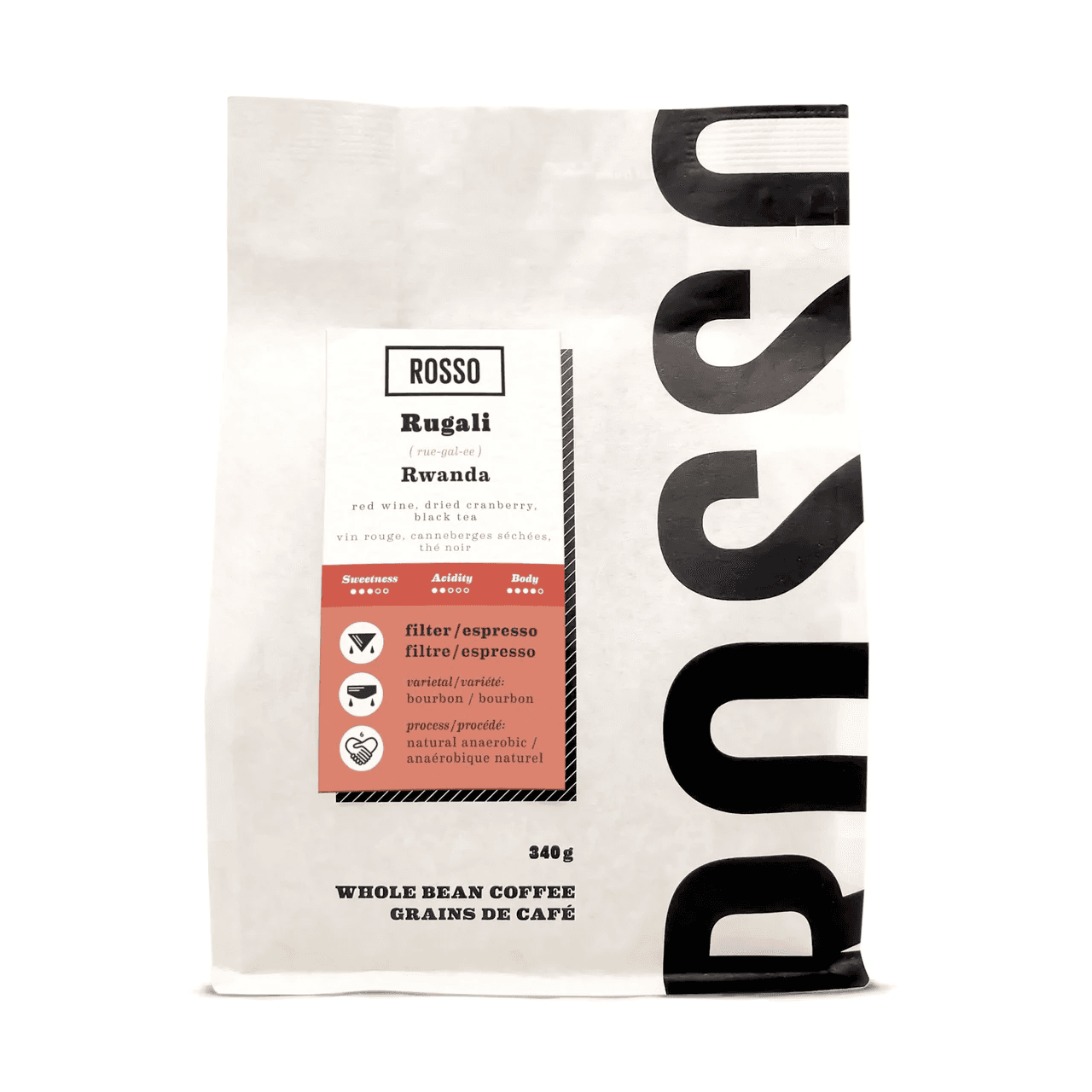Th3rdwave Directories
Cafés
Roasters
Coffees
Guides
Awards
Th3rdwave Coffee Club
Subscription
Gift subscription
Current edition
Past editions
Shop
Advent Calendar
Coffee games
Th3rdwave Wallet
Loyalty cards
Gift cards
Th3rdwave for cafés
Th3rdwave for roasters
Get free coffee
Rugali
Coffee was introduced in Rwanda in the early 20th century. At this time, coffee was produced only with a focus on volume without any concern for quality. It is only after the country began to rebuild following the genocide that efforts by the Rwandese government were put in place to stimulate the coffee industry. Today there are 315 washing stations across the country.
This coffee is sourced from various smallholder farmers around the Rugali Washing Station in Nyamasheke, Rwanda. Located on the shores of Lake Kivu, the station has seen vast improvements since being developed in April 2016. In its first season, Rugali sold natural processed coffees and was the first and only legally approved station in Rwanda to do so.
This particular lot is a natural that has undergone an anaerobic fermentation. Once the ripe cherries have been sorted for quality, they are placed in a tank and a plastic sheet is laid over the top. Cool water is then poured on top of the plastic sheet to create a sealed environment for the anaerobic fermentation to take place. After 48 hours, the cherries are rinsed with the water on top and then dried on raised beds.
The resulting cup reminds us of red wine, dried cranberry and black tea.
This coffee is sourced from various smallholder farmers around the Rugali Washing Station in Nyamasheke, Rwanda. Located on the shores of Lake Kivu, the station has seen vast improvements since being developed in April 2016. In its first season, Rugali sold natural processed coffees and was the first and only legally approved station in Rwanda to do so.
This particular lot is a natural that has undergone an anaerobic fermentation. Once the ripe cherries have been sorted for quality, they are placed in a tank and a plastic sheet is laid over the top. Cool water is then poured on top of the plastic sheet to create a sealed environment for the anaerobic fermentation to take place. After 48 hours, the cherries are rinsed with the water on top and then dried on raised beds.
The resulting cup reminds us of red wine, dried cranberry and black tea.
Coffee was introduced in Rwanda in the early 20th century. At this time, coffee was produced only with a focus on volume without any concern for quality. It is only after the country began to rebuild following the genocide that efforts by the Rwandese government were put in place to stimulate the coffee industry. Today there are 315 washing stations across the country.
This coffee is sourced from various smallholder farmers around the Rugali Washing Station in Nyamasheke, Rwanda. Located on the shores of Lake Kivu, the station has seen vast improvements since being developed in April 2016. In its first season, Rugali sold natural processed coffees and was the first and only legally approved station in Rwanda to do so.
This particular lot is a natural that has undergone an anaerobic fermentation. Once the ripe cherries have been sorted for quality, they are placed in a tank and a plastic sheet is laid over the top. Cool water is then poured on top of the plastic sheet to create a sealed environment for the anaerobic fermentation to take place. After 48 hours, the cherries are rinsed with the water on top and then dried on raised beds.
The resulting cup reminds us of red wine, dried cranberry and black tea.
This coffee is sourced from various smallholder farmers around the Rugali Washing Station in Nyamasheke, Rwanda. Located on the shores of Lake Kivu, the station has seen vast improvements since being developed in April 2016. In its first season, Rugali sold natural processed coffees and was the first and only legally approved station in Rwanda to do so.
This particular lot is a natural that has undergone an anaerobic fermentation. Once the ripe cherries have been sorted for quality, they are placed in a tank and a plastic sheet is laid over the top. Cool water is then poured on top of the plastic sheet to create a sealed environment for the anaerobic fermentation to take place. After 48 hours, the cherries are rinsed with the water on top and then dried on raised beds.
The resulting cup reminds us of red wine, dried cranberry and black tea.
Coffee origin
Country
Rwanda
Region
Northern Province
Variety
Red Bourbon
Altitude
1550 - 1800 m
Farm
Various
Producer
Rugali Washing Station
Process
anaerobic natural
Tastes like
🍷
red wine
🍒
dried cranberry
🍵
black tea
Community reviews
😶
- -
0 Reviews
What people are saying
Recipes
Check out more in the App






